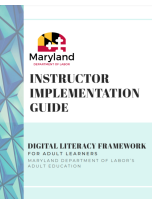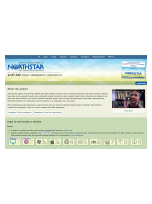Adult Education & Literacy Resource Collection
Explore a collection of 748 high-quality multimedia instructional resources, informed by research, for use by adult educators. These resources have been reviewed by subject matter experts and recommended and approved by the U.S. Department of Education, Office of Career, Technical, and Adult Education (OCTAE), Division of Adult Education and Literacy. Search the collection by category, keyword, date and more.
-
-
-
The Elements: Transforming Teaching through Curriculum-Based Professional Learning
2020
The Elements: Transforming Teaching through Curriculum-Based Professional Learning is a challenge paper from Carnegie Corporation of New York that explores how professional learning anchored in high-quality curriculum materials allows teachers to experience the instruction their students will receive and change their instructional practices, leading to better student outcomes.
Adult Educators
Professional Developers
Researchers
-
Common Elements of Developmental Education Policies
2019
This policy brief identifies common elements of developmental education policies at the system and state levels: college readiness assessments, assessment cut scores, multiple measures for course placement, innovative course models and reporting systems.
Administrators and Program Managers
-
NEFE Financial Education Evaluation Online Toolkit
2018
This online evaluation toolkit is designed to help financial educators understand evaluation concepts and efficiently apply them to document the impact their educational programs have on students.
Administrators and Program Managers
Adult Educators
Professional Developers
-
Northstar Digital Literacy Assessments
2018
This open-access version of the Northstar Digital Literacy Project assessments can be used for assessing digital literacy skills to inform instruction.
Administrators and Program Managers
Adult Educators
Adult Learners
-
The English Learner Family Toolkit
2018
The English Learner Family Toolkit was created to help families choose education services that meet their child’s needs, as well as support U.S. educators, elementary and secondary school teachers, principals, and other school staff, who can also share the toolkit as a resource for English learners and their families.



